In Conversation with Jaspreet Kaur
Friday 26 February, Format: Online, 6.30-8pm Please book a place here Spoken word artist and teacher Jaspreet Kaur will be in conversation with Dr Ben Worthy (Birkbeck) to discuss her new memoir/manifesto Brown Girl Like Me (forthcoming Autumn 2021). The event is organised in connection with Jaspreet's work as the current Ben PiImlott Writer in Residence and is co-organised by the Birkbeck Centre for British Political Life and the Centre for Contemporary Literature. Brown Girl Like Me is an inspiring memoir-manifesto challenging existing portrayals of young South Asian women in the UK; providing a millennial perspective on how brown women navigate and balance the intersectionality of their identities in the new political climate. This book will ask and answer urgent questions about the current state of the world for young British Asian women through interviews with brown women across the country. Brown Girl Like Me aims to empower, support and equip brown women with the confidence and tools to navigate the difficulties that come with an intersectional identity, unpacking key issues such as the home, the media, the workplace, education, mental health, culture, confidence and the body. For more information about Jaspreet, see here: http://www.behindthenetra.com/ For more information about Jaspreet's memoir-manifesto, Brown Girl Like Me, see here: https://www.thebookseller.com/news/bluebird-snaps-kaurs-agenda-setting-debut-1206744# Featured image on the website homepage by Bold Content shared under a CC By 2.0...
The Robots Are Us
CCL members Prof. Roger Luckhurst and Dr Caroline Edwards featured in a recent radio programme on BBC Radio 3 broadcast on Sunday 10 January 2021. Titled "The Robots Are Us" and presented by Ken Hollings, the programme looked at the legacy of Karel Čapek's play Rossum's Universal Robots (R.U.R.) on the 100th anniversary of the play's premiere in Prague's National Theatre in January 1921. Programme description: In January 1921, in a Europe still reeling from war and revolution, the Czech writer Karel Čapek created a worldwide hit with his 'comedy of science and truth' R.U.R. (Rossum's Universal Robots), flesh not metal, are sold around the world first to create a world free from arduous labour and then to fight our wars. Free from consciousness or feelings. What could possibly go wrong? Humanity stops breeding and a new class of feeling robots strike out for a brave new world once humankind is all but exterminated. This now seems awfully familiar but in 1921 not so much. Ken Hollings examines the creation and legacy of a play that both gifted the world the word Robot and began an enduring cliché that intelligent machines will rise up and destroy us. Written before pulp science fiction and at the height of Taylorism and the Ford assembly line, it found an international audience anxious about the fate of workers and work, revolution and mass production. But Čapek's fleshy creations, more replicant that TOBOR, would soon be overlayed with the image of the clanking metal machine that would surely seek world domination on the covers of pulp science fiction and movies. In fiction the SKYNET is always falling, our robot overlords must be welcomed and the singularity is just around the corner. The science of Robotics would only begin in earnest decades after R.U.R. and A.I. and its ethical conundrums of existence, rights and reasoning belong to our 21st century yet Capek's notion of the revolt of the machines still dances through our debates and imagination. Ken Hollings talks to historians, roboticists, to grasp the power of R.U.R. and all that has followed. Click here to listen to the programme on BBC Sounds. For further information on the MA programmes that Prof. Roger Luckhurst and Dr Caroline Edwards direct, see our MA Modern and Contemporary Literature and MA Contemporary Literature and Culture. Featured image by Марьян Блан | @marjanblan on...
Notes on Camp, 2020
Birkbeck PhD student Dickon Edwards recently gave a short talk on the relevance of camp to a number of recent literary and theoretical works published in 2020. Delivered as part of our biannual PhD Conference held on 17 December 2020, Dickon’s talk, titled “Notes on Camp, 2020,” considered different forms of camp performance, including cosplay, wearing masks, and drag as a strategy of healing. You can watch a recording of Dickon’s talk and PowerPoint below, or read the transcript underneath. Featured image by Bret Kavanaugh on Unsplash Notes on Camp 2020 At this time of year there is a tradition in the media to publish reviews of the 12 months just gone. The following talk represents my own survey of the year 2020, in terms of the new books and cultural events which appeared on the radar of my research. 1. Camp Modernism – definitions My research is on camp modernism. This can be thought of as the intersection between ‘Camp’, which is typically associated with exaggeration and irony, external surfaces, externalised behaviour, and is particularly associated with the history of homosexual subcultures. ‘Modernism’, meanwhile, is a label often associated with fragmentation, with depth, and with interiority. Until recently these two concepts were thought incompatible. So much so, that modernism has sometimes been thought of as a mainly heterosexual idea, because it doesn’t easily lend itself to camp. 2. Books of the Year There is certainly a hint of that theory in the title of one of my books of 2020. No Modernism Without Lesbians by Diana Souhami suggests in its title alone that if modernism is associated with depth and internalised experience, it has tended to mean, by default, heterosexual depth and heterosexual experience. Souhami’s title is even something of a camp flourish, suggesting that modernism is just another artificial category, as with gender and sexuality, that needs to be played with and questioned. The book explicitly mentions camp in the case of the work of the writer Gertrude Stein, who often used humour, innuendo and wordplay to create a space for a form of modernist lesbian identity. Decadent Catholicism by Martin Lockerd, meanwhile, touches on the complicated way that Victorian decadence drew upon the aesthetics of Catholicism yet playfully mocked those as well. Indeed, this type of decadence then evolved into the more secular style of twentieth-century camp. The single most referenced essay on camp, Susan Sontag’s ‘Notes on Camp’ (1964) is not only dedicated to Oscar Wilde, but it is written in the style of Wilde’s aphorisms, which is one reason why it’s so eminently quotable. Masks is a collection of essays by Slavoj Zizek and...
Katherine Angel LRB Book Launch
1st March 2021, 7pm (LRB bookshop online) CCL member and Director of our MA Creative and Critical Writing, Dr Katherine Angel, will be launching her new book at the London Review of Books on 1st March 2021 at 7pm (GMT). Titled Tomorrow Sex Will Be Good Again: Women and Desire in the Age of Consent, Katherine Angel will discuss the work in conversation with Olivia Laing, author of Funny Weather (Picador). Spanning science and popular culture, Tomorrow Sex Will Be Good Again examines pornography and literature, debates on #MeToo, consent and feminism to challenge our assumptions about women’s desire. Why, she asks, should they be expected to know their desires? And how do we take sexual violence seriously, when not knowing what we want is key to both eroticism and personhood? In today’s crucial moment of renewed attention to violence and power, Angel urges that we remake our thinking about sex, pleasure, and autonomy without any illusions about perfect self-knowledge. Only then will we fulfil Michel Foucault’s teasing promise, in 1976, that “tomorrow sex will be good again.” The book has already been described as “a provocative, elegantly written analysis of female desire, consent, and sexuality in the age of MeToo.” Olivia Laing calls it “[a]n ardent, rigorous, nuanced investigation into the question of consent, at once illuminating and empowering. A truly vital guide to navigating the difficult waters of 21st century desire.” To book your ticket for the LRB online book launch, click here. To pre-order a copy of Tomorrow Sex Will Be Good Again, click here. For further information on the MA Creative and Critical Writing that Katherine Angel directs, click...
Radical Attention Book Launch
CCL member and Director of Birkbeck’s MA in Creative Writing, Julia Bell, recently launched her new book Radical Attention, which was published by Peninsula Press in October 2020. You can watch the launch event below, in which Julia Bell discusses how attention has been commodified within digital capitalism with Olivia Laing. Radical Attention is an extended essay on the battle for our attention in the age of distraction. In today’s online economy, attention has become a commodity to be bought and sold. Bombarding us with free smartphone apps and news websites, developers and advertisers have turned what and how focus our attention into the world‘s fastest growing industry. In exchange for our attention, information and entertainment is ever at our fingertips. But at what cost? In this essay, at once personal and polemical, meditative and militant, Julia Bell asks what has been lost in this trade off. How can we reclaim our attention? In a world of infinite distraction, how can attention become radical? Olivia Laing has called Radical Attention a “[t]errifying, clarifying and ultimately hopeful, this is an essential book. Julia Bell grapples with the grim realities of our online lives, setting out possibilities for resisting and reclaiming our imperilled freedoms.” For more information about Birkbeck’s MA Creative Writing, which Julia Bell directs, please click...
LSFRC Reading Group, 2020-21
From Sultana’s Dream, Chitra Ganesh (2018) The London Science Fiction Research Community (LSFRC) are proud and excited to share the theme for their 2020-21 reading groups and conference: Activism and Resistance. The theme is open to be shaped by incoming new team members, but the LSFRC are keen for folks to start suggesting texts for the reading groups. They write: “We are keen to avoid cloistering ourselves within certain forms and media, and welcome suggestions of short stories, graphic novels, poetry, anthologies, theory & essays, games (tabletop and/or digital), artwork, films, novels and more.” The first reading group session will be taking place online on the evening of Monday 12th October and will cover Kwodwo Eshun’s “Further Considerations on Afrofuturism” alongside John Akromfrah’s film The Last Angel of History, which we will be screening before the session. If you aren’t on Facebook and would like you attend the reading group, send us an email (lsfrcmail [at] gmail [dot] com). Activism & Resistance In an age when Me Too, Black Lives Matter, Decolonise the Curriculum, Refugees Welcome, and movements for global solidarity with oppressed populations have become part of mainstream discourse, it is vital to re-examine the relationship between activism, resistance and the mass imagination with regards to science fiction. As a genre dedicated to imagining alternatives, science fiction offers us a space of radical potential which allows for diverse explorations of dissent. It is, also, a space that has been rightfully critiqued for its historic inequities, formed by and favouring white cis-het men. There needs to be reckoning with how precarious bodies engage in activism and resistance in the context of their material realities and restrictions. Therefore, we must deny universalising a single experience as “sufficiently radical,” and instead acknowledge how communities in the margins – queer, disabled, BIPOC, immigrants & refugees, religious minorities, indigenous populations, casualised workers, the homeless and unemployed – have specific ways of subverting and undermining oppressive systems. It is imperative to not only revisit how science fiction has been a space for activism and resistance, but also to resist and challenge the genre’s shortcomings. Indicative texts could include: Chaos Walking trilogy, Patrick NessThe Dispossessed, Ursula Le GuinThe Queue, Basma Abdel AzizSisters of the Revolution, edited by Ann and Jeff VandermeerOctavia’s Brood, edited by adrienne maree brown, Walidah Imarisha and Sheree Renee ThomasDetroit: Become Human, Quantic DreamThe Last Angel of History, John AkromfrahStar Wars, George Lucas“Further Considerations on Afrofuturism,” Kodwo Eshun“2019 John W. Campbell Award acceptance speech,” Jeanette Ng“My Words to Victor Frankenstein Above the Village of Chamounix,” Susan StrykerMarvel Civil War, Mark Millar For more information visit the LSFRC website: http://www.lsfrc.co.uk/ Horizon, Manzel...



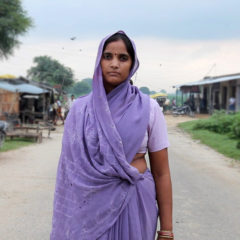

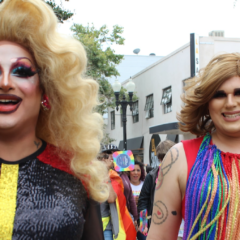
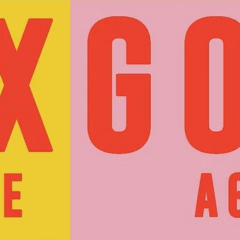
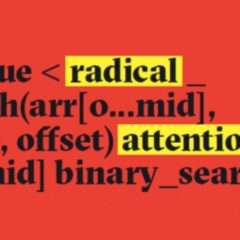
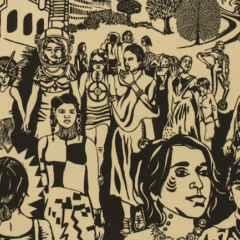
Recent Comments